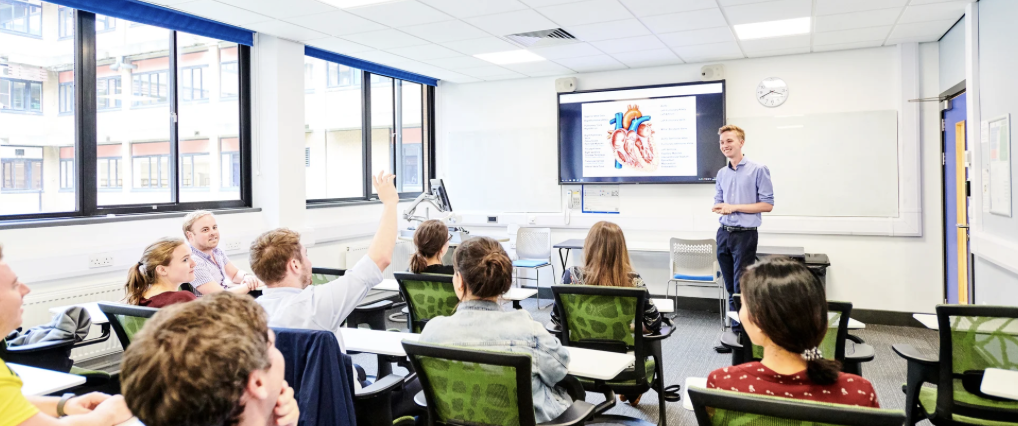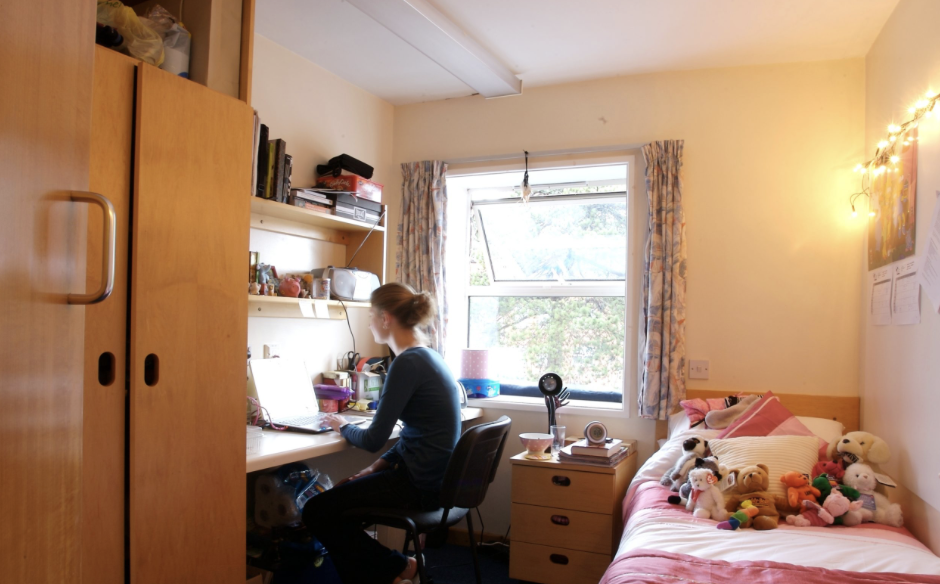A Levels, or Advanced Level qualifications, are crucial in the UK education system, bridging the gap from GCSEs. Typically taken in Years 12 and 13, they allow students aged 16 or 17 to specialise deeply in selected subjects. This rigorous programme lasts two years and cultivates critical thinking and analytical abilities essential for future academic pursuits. Suitable for motivated students keen on higher education, A Levels require a minimum of five GCSEs at grades 9 to 4/A* to C. They provide the flexibility to tailor studies according to personal interests while establishing a robust academic foundation vital for success ahead.

A Levels are particularly suited for students who have a clear vision for their academic future, especially those aiming for university. If you find joy in exploring subjects in depth and have a strong motivation for learning, A Levels could be a great match for you. They cater well to individuals who thrive in structured environments and enjoy taking responsibility for their studies.
These qualifications demand a solid grasp of study skills and effective time management, as they present a real challenge. Students who can handle pressure from exams and tight coursework deadlines will likely find A Levels rewarding.
If you have a passion for specific subjects, such as the sciences or humanities, and wish to pursue them further, A Levels provide the opportunity to do just that. Furthermore, if you are considering competitive university courses that require high grades, A Levels are often the preferred route.
For those of you who may not have a defined career path yet but excel academically, A Levels offer a flexible range of subject choices that can lead to various opportunities. It's crucial to reflect on your strengths and interests before diving into A Levels, as dedication and commitment are essential to succeed.

To embark on the A Level journey, students typically need a minimum of five GCSEs, ideally achieving grades between 9 and 4 (A* to C). Most schools and colleges expect at least a grade 6 in subjects directly related to the A Levels a student wishes to pursue.
It's essential to check the specific requirements of each institution, as these can vary. Some subjects may have additional prerequisites, such as needing higher GCSE grades in related areas. Success in GCSEs is often a strong indicator of potential performance in A Levels, given that A Levels build upon the foundational knowledge acquired during GCSEs.
When selecting A Levels, students should reflect on their overall performance and confidence in their subjects. For those who may not meet the standard entry requirements, some colleges offer foundation courses, making it worthwhile to explore various options. Additionally, discussing GCSE results with teachers or career advisors can provide tailored guidance, helping students make informed decisions about their A Level choices. Planning ahead and understanding these requirements early can significantly reduce stress during the application process.

A Levels are primarily for students aiming to further their education, especially those with specific academic or career ambitions. They appeal to those who are intellectually curious and enjoy grappling with complex ideas.
If you are self-motivated and capable of independent study, A Levels might be a suitable choice, as they demand a higher level of commitment compared to GCSEs. Students who thrive on analytical thinking and problem-solving often find A Levels rewarding. For those looking to enter competitive fields or prestigious universities, the in-depth study A Levels provide can be particularly beneficial.
Additionally, A Levels cater to students who excel in structured learning environments and possess good time management skills. If you’re passionate about certain subjects and eager to explore them more thoroughly, A Levels represent an excellent opportunity. Furthermore, mature students or those returning to education can find A Levels to be a structured pathway towards higher education, allowing them to build a strong academic foundation for their future careers or studies.

A Levels offer a broad range of subjects, allowing students to select those that resonate with their passions and professional aspirations. Mathematics is a popular choice, honing critical thinking and problem-solving abilities essential for many fields. For those intrigued by human behaviour, Psychology provides valuable insights into mental processes. Students aiming for careers in medicine or the natural sciences often gravitate towards Biology, Chemistry, and Physics, as these subjects form the backbone of scientific understanding.
Sociology, History, and Geography delve into societal structures, cultural dynamics, and environmental issues, enriching students' perspectives on the world. Business Studies and Economics appeal to those fascinated by commerce and trade, equipping them with knowledge relevant for the modern economy. Students can also explore creative avenues through subjects like Art and Design or Media Studies, which encourage innovative thinking.
Additionally, languages such as French or Spanish enhance communication skills and foster cultural appreciation, vital in our interconnected world. Some institutions even offer vocational A Levels, blending academic study with practical experience in specific sectors. When choosing subjects, it’s crucial to consider not only personal interests but also how they align with future educational or career objectives.
|
Subject |
Description |
|---|---|
|
Mathematics |
Develops critical thinking and problem-solving skills. |
|
Psychology |
Interest in understanding human behaviour and mental processes. |
|
Biology |
Essential for students pursuing careers in medicine and natural sciences. |
|
Chemistry |
Important for those looking at fields like pharmacology or chemical engineering. |
|
Sociology |
Provides insights into society, culture, and social behaviour. |
|
History |
Explores past events and their impact on the present. |
|
Business Studies |
Covers aspects of commerce, finance, and management. |
|
Economics |
Focuses on resource allocation, production, and consumption. |
|
Physics |
Fundamental for careers in engineering, technology, and natural sciences. |
|
Geography |
Examines the Earth's landscapes, environments, and the relationships between people and their environments. |
Choosing A Level subjects is a crucial step in shaping your academic future. Start by reflecting on your interests and strengths; opt for subjects that ignite your passion. Research the entry requirements for the university courses you aspire to, ensuring your chosen subjects align with those goals. A balanced mix of sciences and humanities can offer versatility, helping you keep multiple pathways open.
Consulting teachers or career advisors can provide valuable insights into your performance and suitability for different subjects. Take the time to look at the curriculum for each subject, as understanding what you'll study can make a significant difference in your excitement and engagement.
Consider the skills you wish to develop; whether it's analytical thinking, creativity, or practical abilities, your subject choices should reflect these desires. Be mindful of the workload; some subjects may entail more coursework than others, which can significantly impact your time management.
Discussing your choices with peers or family can also provide support and different perspectives. Finally, be aware of the assessment methods for each subject, as some may focus heavily on exams while others might involve extensive coursework. This holistic approach will help you select A Level subjects that not only align with your interests but also pave the way for future success.
Begin by reflecting on your interests and strengths; choose subjects that you are passionate about.
Research the entry requirements for your desired university courses to ensure your subjects align with future goals.
Consider the balance of subjects; a mix of sciences and humanities can provide versatility.
Seek advice from teachers or career advisors, as they can offer valuable insights based on your performance.
Look at the curriculum for each subject to understand what you will be studying and whether it excites you.
Think about the skills you want to develop, such as analytical skills, creativity, or practical skills.
Consider the workload of each subject; some may require more coursework than others, which can affect your time management.
Discuss subject choices with peers or family members to gain different perspectives and support.
Keep in mind the assessment methods for each subject; some may rely heavily on exams while others may involve coursework.
Make sure you are aware of any prerequisites for advanced study in your chosen subjects.

A Levels are primarily assessed through examinations that take place at the end of the two-year course. These exams often feature a variety of question types, including essays, short answers, and practical assessments, which test a student's ability to apply their knowledge in different formats. In addition to exams, some subjects incorporate a coursework component. This allows students to engage with topics in greater depth, showcasing their research skills and understanding through projects or extended essays.
The assessment process aims to evaluate a student’s comprehensive grasp of the subject matter, with examiners looking for clarity of argument, critical analysis, and effective problem-solving abilities. Grades for A Levels range from A* to E, with A* indicating exceptional performance. After assessments, students receive feedback that can inform their future studies or university applications. To prepare effectively, many students participate in mock exams, which help them become familiar with the exam format and expectations. Understanding the specific assessment criteria can also guide students in focusing their studies and refining their exam techniques.

A Level results are released on the 15th of August, a day filled with anticipation for students across the UK. Many choose to collect their results in person at their school, where the atmosphere is often a mix of excitement and nerves. Alternatively, students can also access their results online, making it a convenient option for those who prefer a quieter setting.
The significance of this day cannot be overstated, as the results directly impact university placements. Many students have conditional offers based on their grades, meaning that achieving or surpassing their predicted grades can lead to unconditional offers or acceptance into their preferred universities. Conversely, if students fall short of their expectations, they have the opportunity to explore Clearing, a process that assists in finding alternative courses that may still suit their aspirations.
On results day, support is usually readily available, with teachers and advisors on hand to help students navigate their next steps. It's important for students to take a moment to review their results carefully and consider their options before making any decisions. The emotional rollercoaster of results day can range from joy and relief to disappointment and uncertainty.
Understanding the available options post-results is crucial. Whether it involves reapplying for different courses or considering alternative pathways, students should remember that their results do not define their future. There are numerous routes to success, and it’s perfectly normal to reassess and adapt in light of the outcomes.

After completing A Levels, students have a variety of pathways open to them. One of the most common routes is to pursue higher education at a university, where they can specialise in fields that align with their interests and career aspirations. For those who prefer a hands-on approach, vocational training or apprenticeships offer practical experience in specific industries, allowing students to gain valuable skills while earning a wage.
Some students may decide to enter the workforce directly, utilising the skills and knowledge they have acquired during their A Level studies. This can provide essential work experience and help clarify future career goals. Alternatively, taking a gap year is a popular option, as it allows time for personal development, travel, or volunteering before committing to further education.
For those looking to enhance their qualifications, retaking A Levels or exploring alternative qualifications can improve prospects for university admissions or job opportunities. Additionally, engaging in internships or part-time jobs can provide insights into various career paths, helping students make informed choices about their futures. Networking with professionals in desired fields can also offer guidance and open doors to further training or certifications, ensuring that students are well-prepared for the next stage of their journey.
Degree Gap offers personalised tutoring sessions that cater specifically to the unique needs of each student. Their tutors are not just knowledgeable; they are specialists in their subjects, providing in-depth support that helps students grasp complex concepts. With flexible scheduling options, students can easily find sessions that fit their busy timetables. The one-to-one tutoring format ensures that each student receives dedicated attention, allowing for targeted learning and tailored strategies. For those who thrive in collaborative environments, group sessions are also available, promoting peer support and shared learning experiences.
Students can choose between online and in-person tutoring, accommodating various learning preferences. Degree Gap emphasises regular progress tracking, helping students stay on course and pinpoint areas needing improvement. To prepare students thoroughly for their assessments, they provide mock exams and practise papers, simulating the real exam conditions. Their tutors are well-versed in the specific requirements of various A Level exam boards, ensuring that students are fully prepared for the format and content of their examinations. Furthermore, parental involvement is encouraged, with regular updates provided to keep families informed about their child's progress.
Each A Level subject follows a specific curriculum set by exam boards like AQA, Edexcel, and OCR. These specifications detail the content students need to study, the assessment methods they'll encounter, and the examination formats they should prepare for. It's crucial for students to review these documents to grasp what is expected in their chosen subjects. While the core content remains similar across boards, variations in assessment methods can occur. Therefore, selecting subjects that align with a single exam board is advisable for consistency in preparation. Specifications also outline practical assessments and coursework requirements, which are vital to understand for effective revision. Familiarity with these specifications can aid students in setting realistic goals and expectations for their grades. Additionally, some subjects offer optional units or topics, allowing students to choose areas that pique their interest. Students can easily access specifications on their respective exam board websites, making it simpler to plan their study approach.
A Levels are structured in two main parts: AS Level, which is taken in Year 12, and A2 Level, in Year 13. AS Levels can serve as standalone qualifications, but most students use them as a stepping stone to A2. Typically, students choose to study three to four subjects, allowing them to focus on areas where they excel and are passionate. At the end of the A2 year, each subject is assessed through a combination of exams and coursework, with a grading system that ranges from A* to E, and a U for ungraded. A Levels place significant emphasis on final examinations, particularly in the A2 year, which means students must be well-prepared for these assessments. This structure contrasts with GCSEs, as it enables students to explore subjects in greater depth. Some schools may also offer the option to take additional subjects for those seeking an extra challenge. However, it’s crucial for students to manage their workload and maintain a balance to prevent overwhelming stress. Many schools provide support systems to help students organise their study schedules effectively.
A Level results are usually released on a significant day in mid-August, specifically on the third Thursday of the month. This day is filled with a mix of excitement and anxiety, as students eagerly await their results. Depending on their preference, students can receive their results in several ways: by post, online, or in person at their school or college. It's essential for students to check their school's specific arrangements regarding how results will be distributed, as this can vary.
On results day, students should be aware of the options available to them. If they find that their results do not meet the requirements for their university offers, they can explore the Clearing process. This allows them to apply for other courses that may still have available spaces. Additionally, clear guidance is provided for those who wish to appeal or query their results, ensuring that they understand their rights and options.
It's advisable for students to have a plan in place for results day, as this can help manage expectations and reduce stress. Support from teachers and family can be invaluable during this time, helping students navigate their emotions and the next steps. It's important to remember that results do not define one’s future; there are many pathways available, and being prepared for all possible outcomes can greatly alleviate uncertainty.
Students have the option to retake A Levels to improve their grades, typically in the following academic year. Retakes can be taken at the same centre or a different institution if necessary, depending on personal circumstances. Many students choose to focus on specific subjects rather than retaking all their A Levels, which can help streamline their efforts and improve overall results. It's important to note that exam boards have specific policies regarding retakes, including deadlines and fees, so students should consult their schools for guidance on the process.
Reapplying to universities is certainly possible after retaking A Levels, but it requires thorough research into the options available. Some universities may consider improved grades from retakes, while others might maintain strict entry requirements. A gap year is a common choice for students looking to bolster their applications or gain valuable experience before reapplying.
Preparation for retakes should involve a careful review of previous performance and a focused study plan. Support from tutors can be invaluable in devising a retake strategy that aligns with the student's needs and learning style.
A Levels, or Advanced Level qualifications, are exams taken in the UK, typically after completing GCSEs. They are important because they help students specialise in subjects they enjoy or need for university, shaping their future studies and career paths.
A Levels usually take two years to complete. Students study for their A Levels in Year 12 and Year 13, with the exams often held at the end of the second year.
Students can choose from a wide range of subjects for A Levels, including maths, sciences, languages, humanities, and arts. The choices may vary depending on the school or college.
To prepare for A Levels, students should focus on studying the subject material, doing homework, and practising past exam papers. It's also helpful to manage time well and ask teachers for help when needed.
Yes, students can change their A Level subjects, but it's best to do so early in the course. They should discuss any changes with their teachers and consider how it may affect their future plans.
TL;DR A Levels, or Advanced Level qualifications, are a key part of the UK education system, typically taken over two years by students aged 16 or 17. They provide an opportunity for deeper study in chosen subjects, often leading to higher education. Students generally need a minimum of five GCSEs at grades 9 to 4, and at least a grade 6 in relevant subjects. Popular A Level subjects range from Mathematics to History. Students are assessed through exams and coursework, with results released in mid-August. After A Levels, options include university, vocational training, or entering the workforce. Expert tutoring services, like Degree Gap, can offer personalised support to help students succeed.